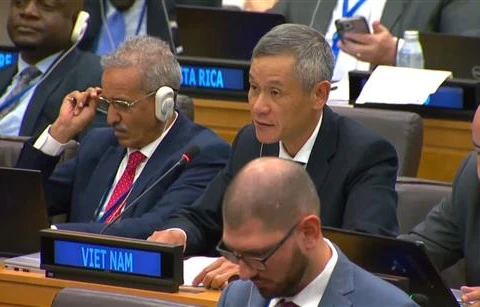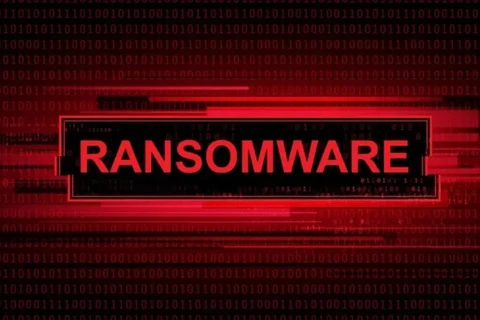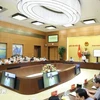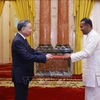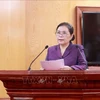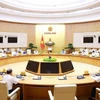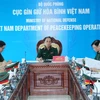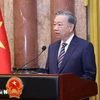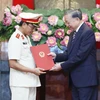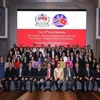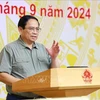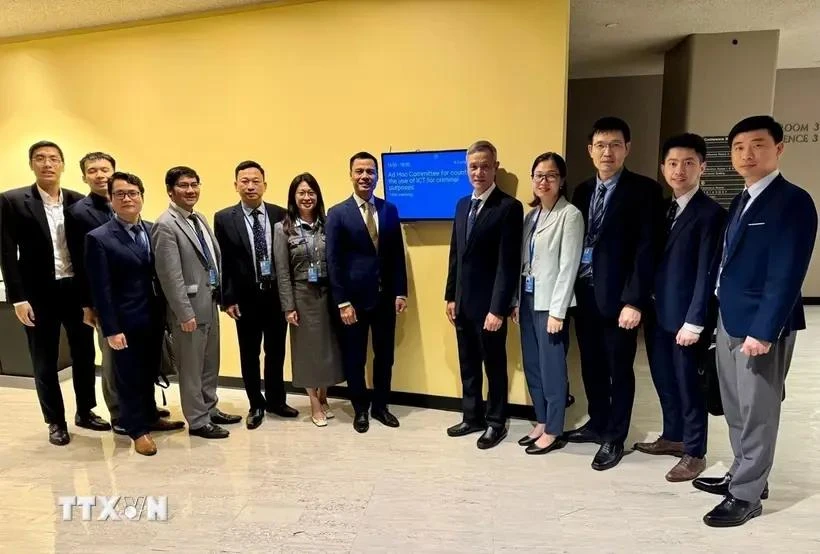
Hanoi (VNA) - The United Nations (UN) Ad Hoc Committee on Cybercrime’s adoption of a draft UN convention against cybercrime on August 8 holds much significance to Vietnam, said Permanent Deputy Minister of Foreign Affairs Nguyen Minh Vu.
He told the media that Vietnam is one of the countries with the highest number of internet users – 78.44 million as of the start of 2024, equivalent to 79.1% of the population.
Data from authorities show that there were nearly 16,000 reports about online scams in the country last year, causing losses of 390 trillion VND (15.5 billion USD), surging 64.78% from 2022. Since the beginning of 2023, Vietnam has seen more than 13,750 cyberattacks causing serious disruptions to information systems.
Vu said that aware of the increasingly severe threats from cybercrime and the necessity for enhancing cooperation with other countries and international organisations in fighting cybercrime, the Ministry of Foreign Affairs, the Ministry of Public Security, and other agencies of Vietnam engaged in the discussion and negotiation of this document from the initial stage in 2022.
The consistent support for the establishment of a negotiation mechanism and the active participation in the eight sessions of the Ad Hoc Committee sent out a strong message that Vietnam is an active and responsible member of the international community that is joining hands with others to solve global issues and contribute to a peaceful and stable environment in the world, he noted.
Elaborating on the adoption’s significance to Vietnam, he said that first, the draft provides a detailed and comprehensive legal framework for Vietnamese authorities to establish and boost the effectiveness of cooperation with other countries’ law enforcement forces. As cybercrime is borderless, international cooperation is critically important to helping Vietnamese agencies investigate and collect information and evidence of acts of cybercrime in a timely manner to serve judicial proceedings.
Second, since there remains a gap in the scientific - technological capacity and digital infrastructure among countries, the draft convention opens up opportunities for developing nations, including Vietnam, to take part in and benefit from technical support, capacity building, and technology transfer mechanisms, which will help developing countries improve their cybercrime prevention and response capacity and subsequently build a healthier and safer global cyberspace, Vu added.
Third, the official went on, Vietnam engaged in the negotiations from the beginning and made practical contributions to the contents pertaining to law enforcement, capacity building, and technology transfer. It also took part in coordinating the regulations on professional measures. In particular, it showed close, effective, and comprehensive engagement in the contents about diplomatic, legal, and technical matters.
This helped demonstrate Vietnam’s proactive and active contributions so as to promote its role in the building and shaping of multilateral institutions and international political - economic order as stated in the political report at the 13th National Party Congress. It was also a move to carry out the policy that Vietnam strives to play a core and leading role at the multilateral forums that hold strategic importance to the country as outlined in the Party Central Committee Secretariat’s Directive 25 on enhancing and elevating multilateral diplomacy by 2030, according to the Deputy Minister.
Following the Ad Hoc Committee’s adoption, the draft convention will be submitted to the UN General Assembly for official approval as soon as possible. After that the convention will be open for member states to sign by December 31, 2026.
In the time ahead, Vu added, the Ministry of Foreign Affairs, the Ministry of Public Security, and relevant agencies of Vietnam need to continue considering the official adoption, signing, and ratification of this convention. They also need to review and perfect domestic specialised legal documents to ensure the convention is enforced effectively and efficiently. Besides, it is necessary to improve infrastructure and technological capacity to meet the convention’s requirements while discussing with the UN and international partners to build suitable technical support programmes.
The adoption of the draft is just the first step, and there remain an array of works needing to be done, requiring further activeness from the relevant ministries and sectors, he remarked./.
